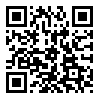Received: 2017/01/31 | Accepted: 2017/03/12 | Published: 2017/07/23
URL: http://ijwph.ir/article-1-661-en.html
BibTeX | RIS | EndNote | Medlars | ProCite | Reference Manager | RefWorks
Send citation to:
2- Psychology Department, Educational Sciences & Psychology Faculty, University of Mohaghegh Ardabili, Ardabil, Iran
3- Psychology Department, Educational Sciences & Psychology Faculty, University of Mohaghegh Ardabili, Ardabil, Iran ,
Aims: Post-Traumatic Stress Disorder (PTSD), is one of the most common, chronic and debilitating psychiatric disorders that occurs after encountering a traumatic event. Studies show that psychological responses from exposure to harmful events are influenced by the affective-emotional temperament of individuals. Therefore, the purpose of this study was to determine the role of affective-emotional temperament in predicting the symptoms of post-traumatic stress disorder in maiamed individuals caused by mine explosion.
Instrument & Methods: This descriptive correlation study was performed on 100 people among all the people who had suffered a defect in the mine during the second half of 2016 under the protection of the martyr foundation of Gilan-e-Qarb City, Iran. The research instrument was a structured clinical interview, the Mississippi post-traumatic stress disorder scale, and the Affective and Emotional Composite Temperament (AFECT). The collected data were analyzed using Pearson correlation coefficient and multiple linear regression analysis using step by step method in SPSS 20 software.
Findings: In sum, affective temperament components explained 51% and emotional temperament components explained 32% of variance of symptoms of post-traumatic stress disorder (p<0.05).
Conclusison: Affective and emotional nature can contribute to defect in how people respond to traumatic events and symptoms of post-traumatic stress disorder in maimed individuals caused by mine blast.









